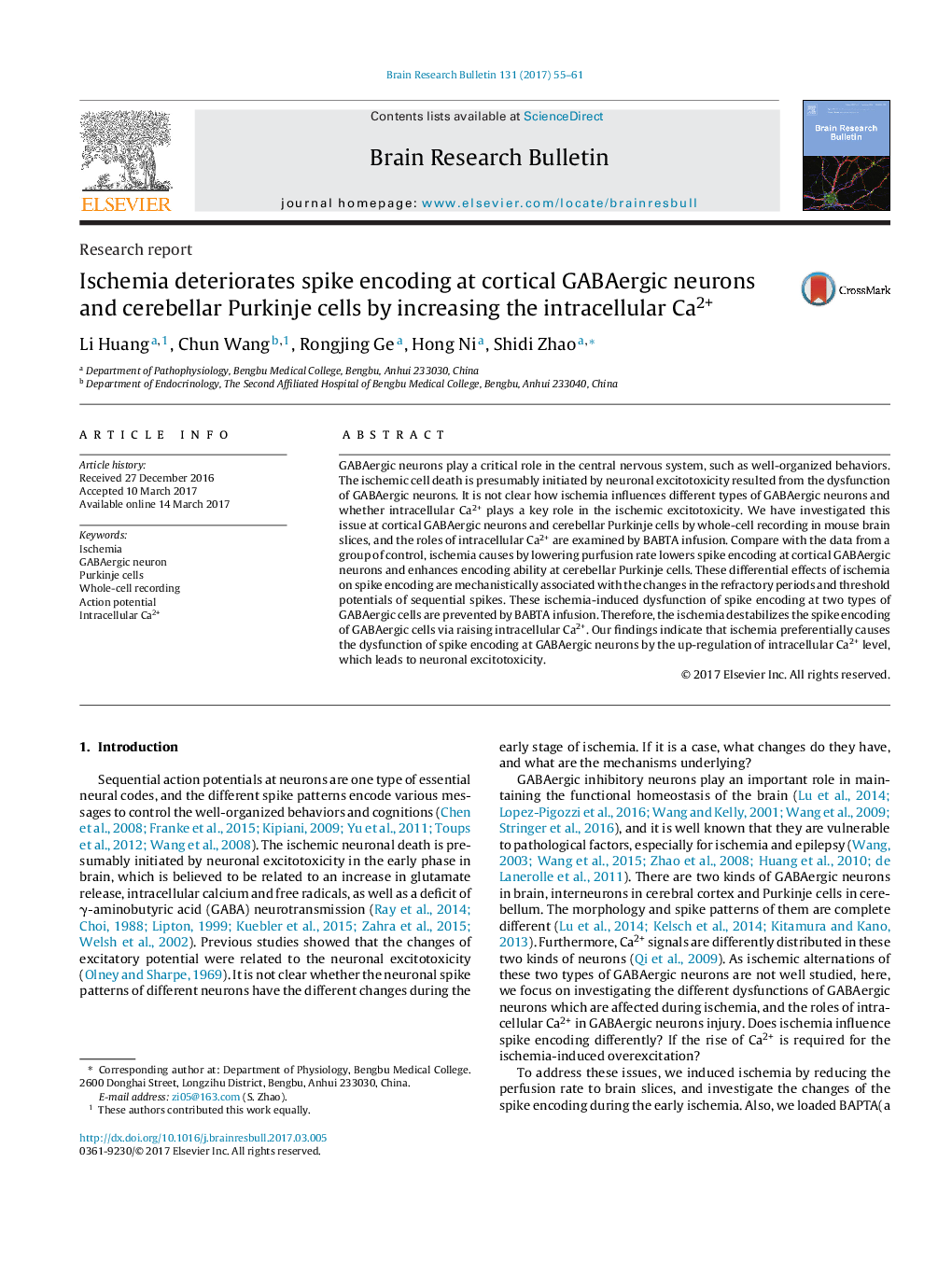| Article ID | Journal | Published Year | Pages | File Type |
|---|---|---|---|---|
| 5736262 | Brain Research Bulletin | 2017 | 7 Pages |
â¢We studied the ischemia-induced dysfunction of two different types of GABAergic neurons in brain.â¢We reduced the perfusion rate to brain slices to simulate in vivo ischemia.â¢The spike encoding during ischemia were completely different.â¢The rised of cytoplasm Ca2+ was essential to ischemia-induced dysfunction of GABAergic neurons in brain.
GABAergic neurons play a critical role in the central nervous system, such as well-organized behaviors. The ischemic cell death is presumably initiated by neuronal excitotoxicity resulted from the dysfunction of GABAergic neurons. It is not clear how ischemia influences different types of GABAergic neurons and whether intracellular Ca2+ plays a key role in the ischemic excitotoxicity. We have investigated this issue at cortical GABAergic neurons and cerebellar Purkinje cells by whole-cell recording in mouse brain slices, and the roles of intracellular Ca2+ are examined by BABTA infusion. Compare with the data from a group of control, ischemia causes by lowering purfusion rate lowers spike encoding at cortical GABAergic neurons and enhances encoding ability at cerebellar Purkinje cells. These differential effects of ischemia on spike encoding are mechanistically associated with the changes in the refractory periods and threshold potentials of sequential spikes. These ischemia-induced dysfunction of spike encoding at two types of GABAergic cells are prevented by BABTA infusion. Therefore, the ischemia destabilizes the spike encoding of GABAergic cells via raising intracellular Ca2+. Our findings indicate that ischemia preferentially causes the dysfunction of spike encoding at GABAergic neurons by the up-regulation of intracellular Ca2+ level, which leads to neuronal excitotoxicity.
